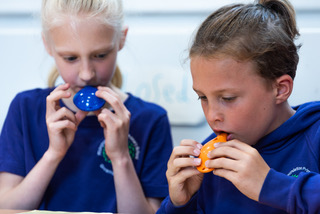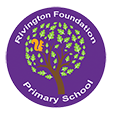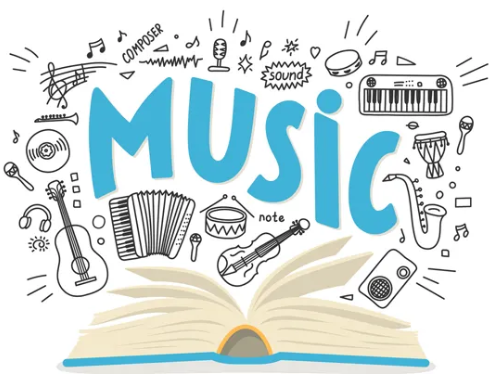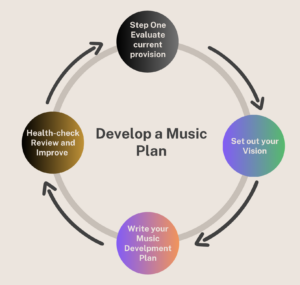
Music
At Rivington Foundation Primary School, we believe that music is a universal language that transcends barriers, welcoming students of all abilities, backgrounds, and experiences. Our music curriculum is designed to engage and inspire pupils, nurturing a deep love of music while helping them discover their unique talents as musicians. Through this, we aim to boost their self-confidence, spark creativity, and foster a strong sense of personal achievement.
All pupils will be provided with rich opportunities to perform, listen to, review, and critically evaluate music from diverse genres, styles, and traditions. This includes exploring the works of both classical and contemporary composers and musicians. Our students will learn to sing, use their voices expressively, and will be encouraged to create and compose music both independently and collaboratively.
To deepen their musical understanding, children will explore the fundamental elements of music, such as pitch, duration, dynamics, tempo, timbre, texture, structure, and the use of appropriate musical notation. This holistic approach helps them understand not just how music sounds, but how it is created, produced, and communicated.
We are committed to providing equal opportunities for all, ensuring that every child—regardless of gender, ethnicity, or ability—has full access to every aspect of our music curriculum. In fostering an inclusive environment, we celebrate the rich diversity of global musical traditions, exploring the role of music in various cultural and religious festivals. Through this, we aim to cultivate a deep appreciation of music’s power to connect people and celebrate diversity.
How is CUSP Music organised?
CUSP Music is taught from Years 1 – 6. Each year group has 6 blocks of 5 weeks teaching. Additional weeks in the academic year can be used for consolidation, revisiting or enrichment. The curriculum is designed to be delivered in 45 – 60-minute lessons, depending on the age of pupils and stage of learning. Schools can choose how to organise this time within their timetable, for example, teachers may choose to deliver one CUSP Music lesson over two shorter blocks of time. Across the year, each year group will focus on developing singing, playing a range of untuned and tuned instruments and building their knowledge about music. Pupils will build their knowledge and musical skills year on year, becoming more expert in playing and appraising a wide range of musical styles.
Each unit contains a table that outlines the key concepts (golden threads) studied throughout the sequence of lessons in the block.
Week 1 |
Week 2 |
Week 3 |
Week 4 |
Week 5 |
Reference lesson |
Knowledge about music |
Becoming a musician |
Knowing about music |
Becoming a musician |
Cultural development
The CUSP curriculum has a strong focus on supporting pupils to meaningfully develop their understanding of other cultures and issues that impact on the wider global community. For this reason, CUSP Music has a specific emphasis on teaching pupils about music that originates from a wide range of cultures, traditions and time periods, including those that are both similar and different to pupils’ own experience of music in modern Britain.
Teachers will note that significant musicians and compositions are included throughout the curriculum. Pupils will learn about important works of music from around the world and their contextual significance in history and society. These have been carefully mapped across the curriculum to ensure a balance of new studies and opportunities to revisit those that pupils have already met. This supports pupils in making connections between musicians and musical works and embedding their aural repertoire cumulatively. Teachers are strongly encouraged to link this learning to pupils’ learning from the wider curriculum, for example, their study of significant historical events, different faiths or the geography of the world.
Assessment
Assessment of Music should be formative and based on the pupil outcomes from each lesson. The following can be used to assess pupils’ knowledge and understanding of music and musical skills:
-
Expectations of what pupils will know and be able to do are included on the front page of each block. The Point of Reflection notes provide clear outcomes for each lesson.
-
Pupils should know and remember the key language that is delivered cumulatively throughout the curriculum. Teachers can use the vocabulary quizzing during, at the end of and after each block to support pupils in embedding this.
-
Questions for assessment are provided for each block. Teachers can use these as part of a Pupil Book Study structured discussion to help them understand what pupils have learnt over time.


